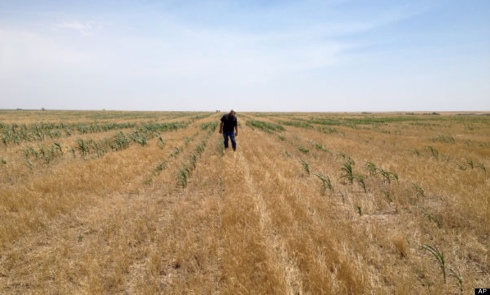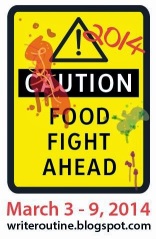
A fellow blogger friend, Shonnie, posted an essay the other day about the summer rain and how it made her feel like a child again. Her post took me back to puddles.
I grew up on Long Island, NY and when it rained in the summer two humongous puddles would form on each end of Lido Parkway, my block. I was a mud puddle freak and I would spend hours splashing barefoot in puddles with my girlfriends.
What was truly miraculous, to us little girls at least, was that tadpoles would be found swimming in those puddles soon after the rains. We’d then spend days watching little legs form as the little tails shrunk, and soon we’d have ‘froggies.’

When it rained like ‘cats and dogs’ my best friend and I would grab shampoo and run to wash our hair outside. Have you ever done that? Rain water makes hair silky soft.
Even as an adult I still washed my hair when it poured out, and I carried the tradition on with my nieces.

Regrettably, those fond recollections of childhood and joyous play in the rain were short-lived. When I think of ‘summer rain’ now I think of farmers and ranchers and crops and livestock, and families. Most of all I think of families who are hurting from a lack of rain.
Since moving to Texas, my conception of rain has drastically changed. Long gone are the days of wanting only sunshine so I could go lay out in the sun or jump on the boat or wishing it would never rain because I didn’t like to drive in it. The past few years have found me praying for rain, praying for liquid gold.

Last year the drought was so bad that hay became almost impossible to find. I scrambled to get a few bales every few weeks for my measly herd of three goats. Though I felt desperation myself, I still could not wrap my head around the straits ranchers with hundred-heads of cattle and farmers with burnt up crops were going through.
No rain means drought, and drought means water sources dry up which in turn dries up pastures where livestock forage and fields where crops grow. Limited or restricted water forces the ranchers to either reduce their herds, move them to other states or liquidate them completely. Farmers lose their crops. As a result, families in many parts of the U.S. suffer.

According to the statistics relating to the above 2011 Texas Drought Monitor, 78% of the state (the dark red) showed “widespread exceptional drought, the worst possible category.” The drought was so bad that 94% of pasture and range land were rated “poor or very poor.” Nearly all hay had to be shipped in from other states at a premium and field crops such as corn and cotton were abandoned. Only 6 of a whopping 254 counties in Texas had no burn ban of any kind in place. Burn bans are issued to aid in preventing wildfires.
Though spring brought rains, they come few and far between now. Hay is still available locally but suppliers question how long this will last.
As I type this, we’ve been lucky to have a couple of days of rain. However, if it’s not a slow and steady rain and instead it pours in short spurts, flash floods occur and the water runs off the land. What remains is crunchy-dried, cracked-dirt fields.
Arkansas, and much of the Midwest, is now suffering extreme drought conditions. The Huffington Post recently reported, “The US Drought Monitor updated its map to show the drought has moved from “severe” to “extreme” in parts of north, west and south Arkansas. Agriculture officials said that the drought is hurting fruit producers along with ranchers and row crop farmers.”

The Today Show has run several stories over the past few weeks relating to the severity of the Midwest drought. According to one story, “Fifty-six percent of the lower 48 states is in drought, and it’s a critical time for the nation’s corn belt.” “Farmers are really hurting and some are comparing this drought to the disastrous drought of 1988 which totaled 39 billion in losses.”
So the next time you or your kids wish away rain, why not make it a teachable event to stop and think of our fellow American farmers and ranchers and their crews and their families? Maybe the sight of rain will become an occurrence in which we all can be truly grateful and appreciative knowing that many depend on it.

If we keep our fellow Americans in our thoughts, perhaps the rains will come and parts of our country will look like this again. We’re all in this together! Rain; it’s liquid gold.































Rain is liquid gold in Arizona too! We haven’t had much yet, even with our Monsoon season upon us…the time we get our rains. Water is precious!! Excellent post:)
I have a friend in Arizona who raises dairy goats and she’s told me how scarce rain is there. Seems too much of the country is feeling ill effects from the lack of it. I hope it rains real soon in your neck of the woods Courtney. Thanks for stopping by!
I’ve never washed my hair in the rain, but that sounds like so much fun! It’s been really dry around here, too. They’ve already declared the corn crops a total loss. I think it’s liquid gold for all of us.
Thanks for stopping in Christina and I’m so glad that you’re feeling much better. Yep, it’s bad; they had another story on the corn crop loss only this morning on the national news. Time to do some rain dancing!
I have never washed my hair in the rain, but I love going for walks in it and I can run so much better in rain–the alabama heat is killer. Thankfully we get a lot of rain most years. We did have a bad drought a few years back. Thankfully we are getting our June rain here in July! 🙂